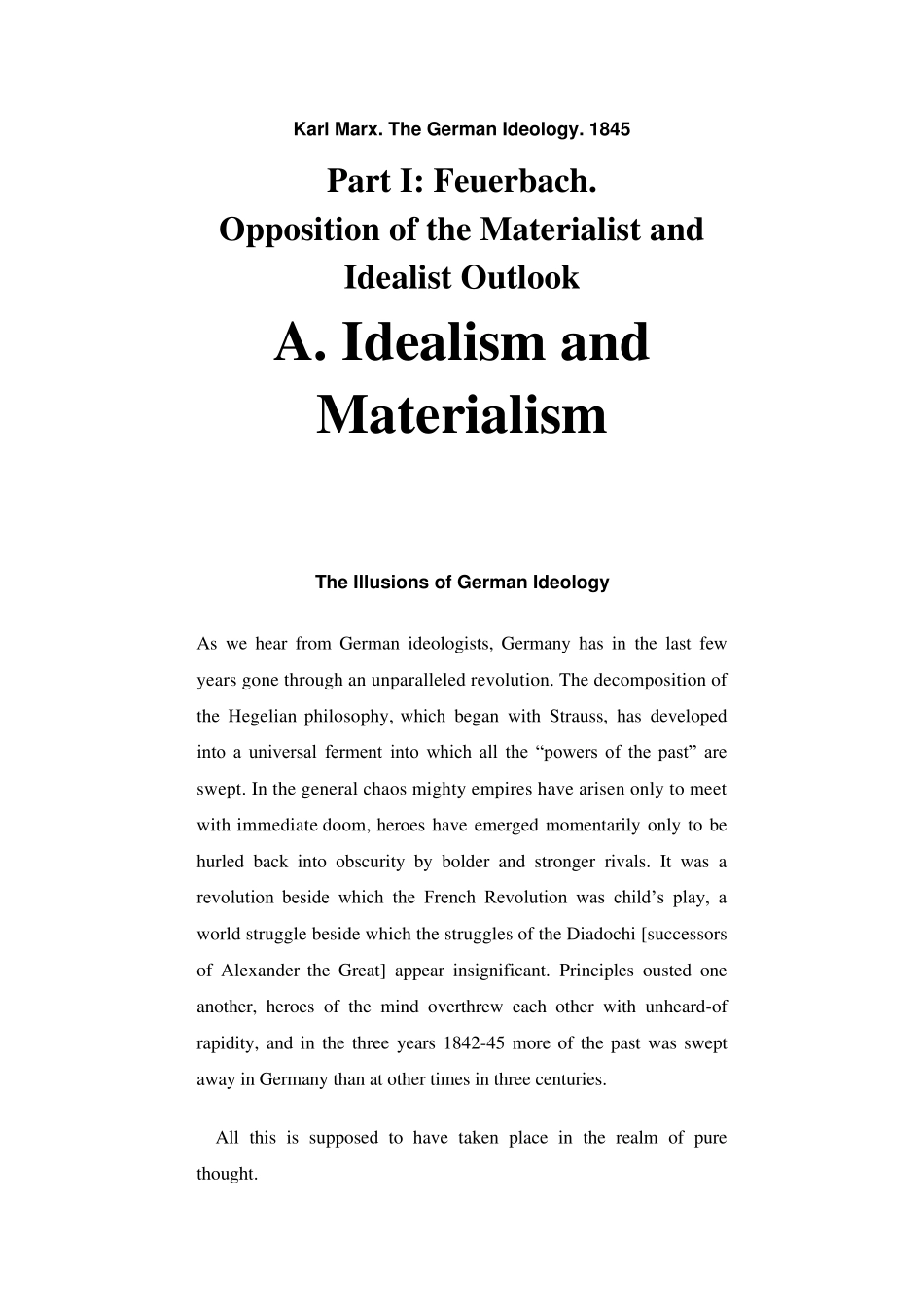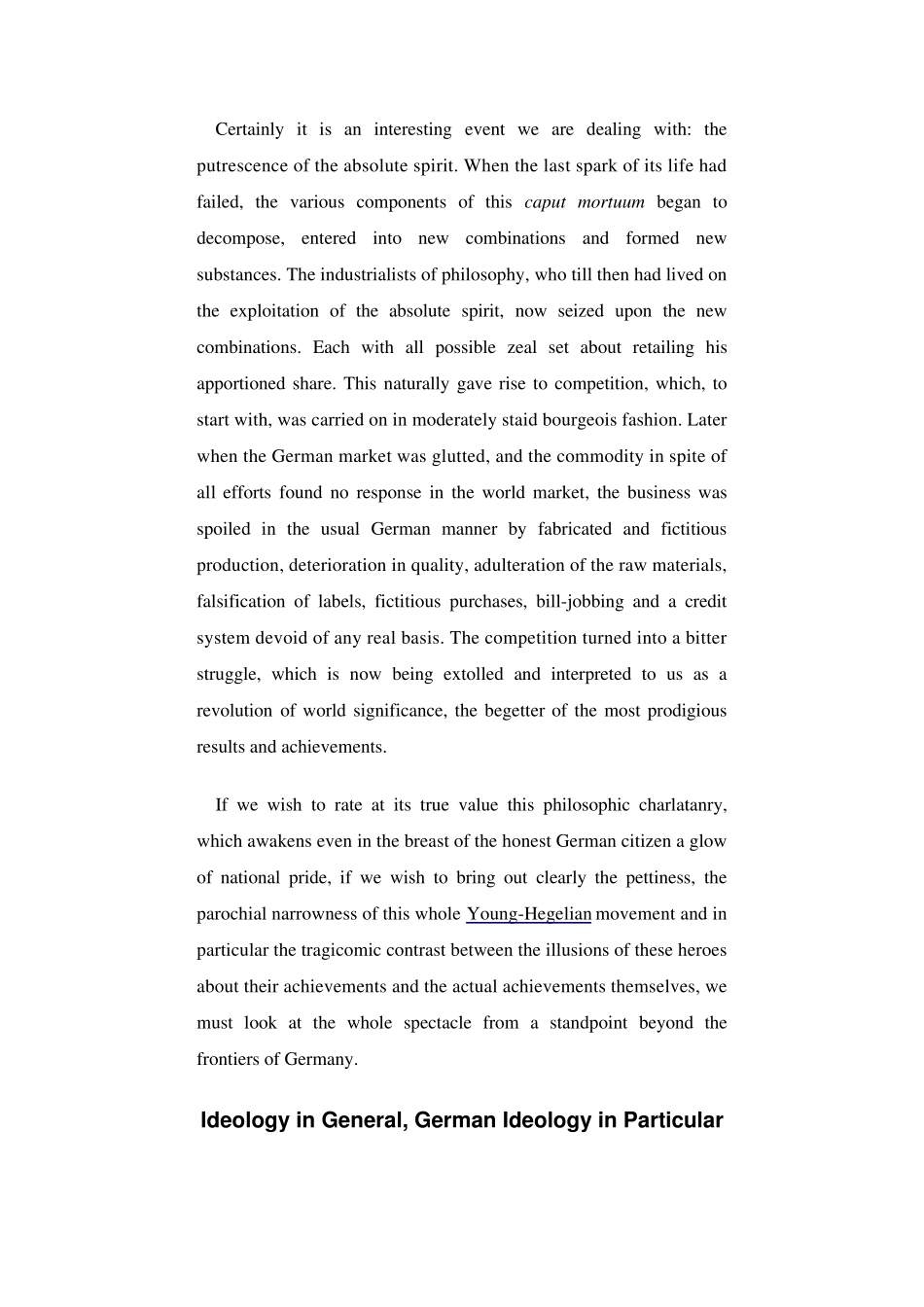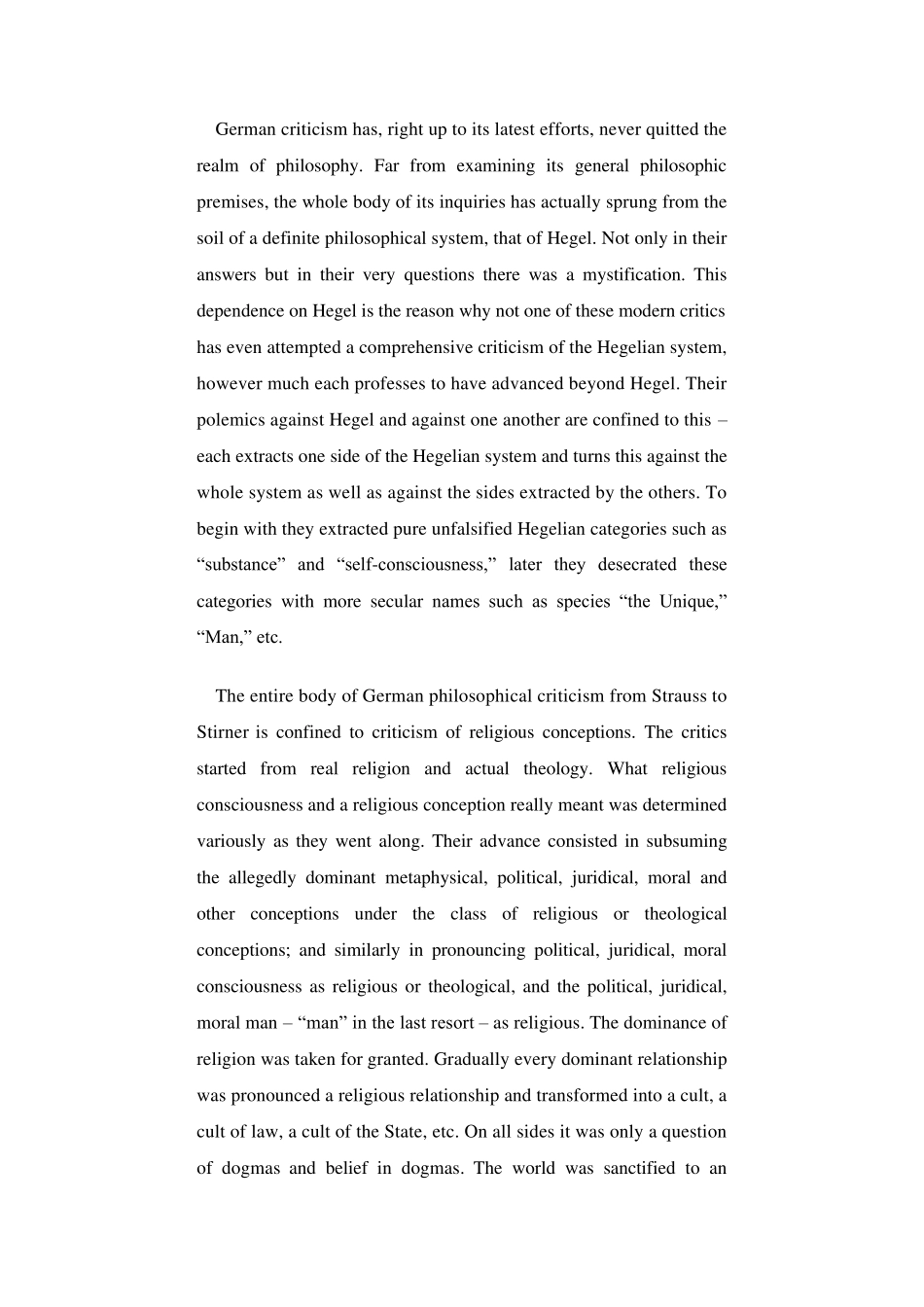Karl Marx. The German Ideology. 1845 Part I: Feu erbach. Opposition of the Materialist and Idealist Ou tlook A. Idealism and Materialism The Illusions of German Ideology As we hear from German ideologists, Germany has in the last few years gone through an unparalleled revolution. The decomposition of the Hegelian philosophy, which began with Strauss, has developed into a universal ferment into which all the “powers of the past” are swept. In the general chaos mighty empires have arisen only to meet with immediate doom, heroes have emerged momentarily only to be hurled back into obscurity by bolder and stronger rivals. It was a revolution beside which the French Revolution was child’s play, a world struggle beside which the struggles of the Diadochi [successors of Alexander the Great] appear insignificant. Principles ousted one another, heroes of the mind overthrew each other with unheard-of rapidity, and in the three years 1842-45 more of the past was swept away in Germany than at other times in three centuries. All this is supposed to have taken place in the realm of pure thought. Certainly it is an interesting event we are dealing with: the putrescence of the absolute spirit. When the last spark of its life had failed, the various components of this capu t mortu u m began to decompose, entered into new combinations and formed new substances. The industrialists of philosophy, who till then had lived on the exploitation of the absolute spirit, now seized upon the new combinations. Each with all possible zeal set about retailing his apportioned share. This naturally gave rise to competition, which, to start with, was carried on in moderately staid bourgeois fashion. Later when the Germa...


